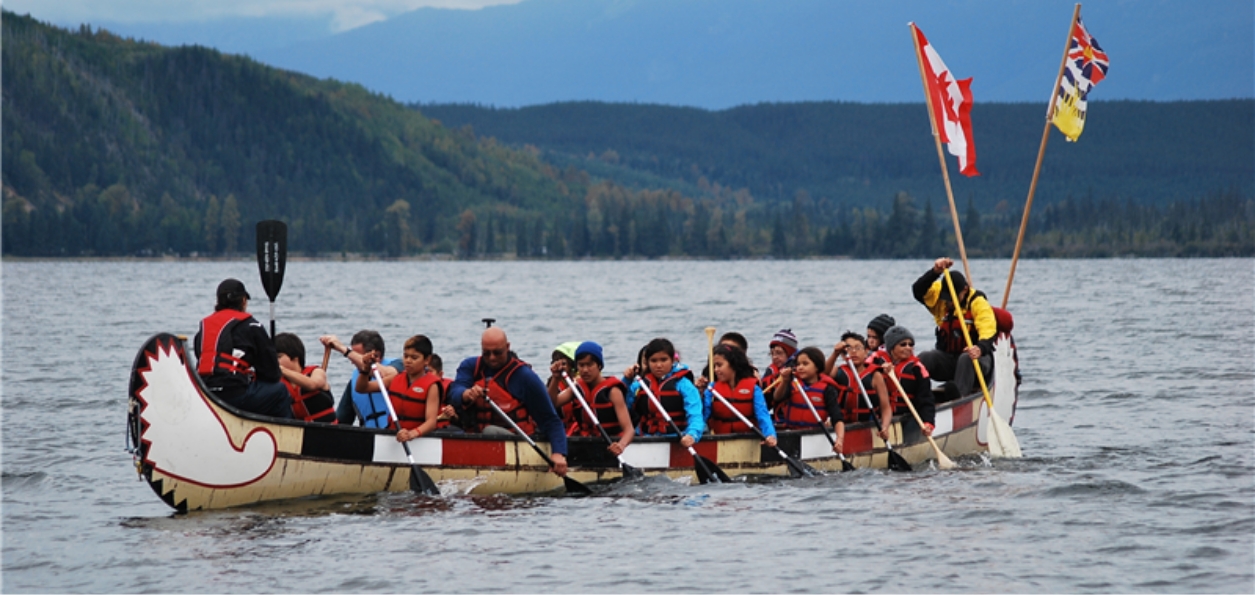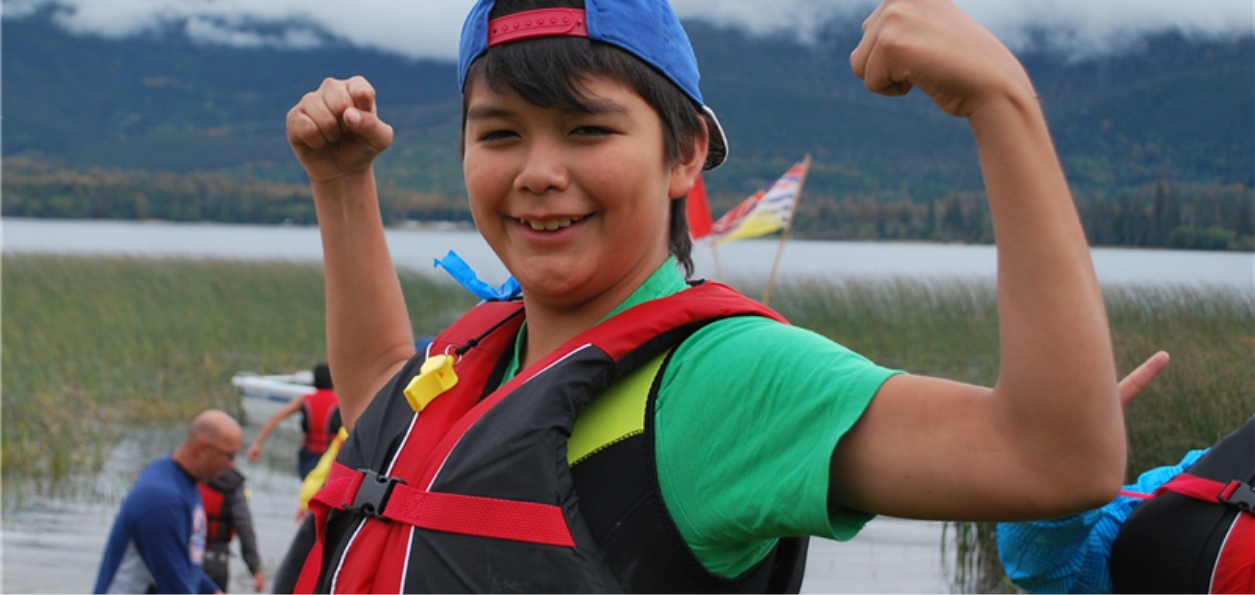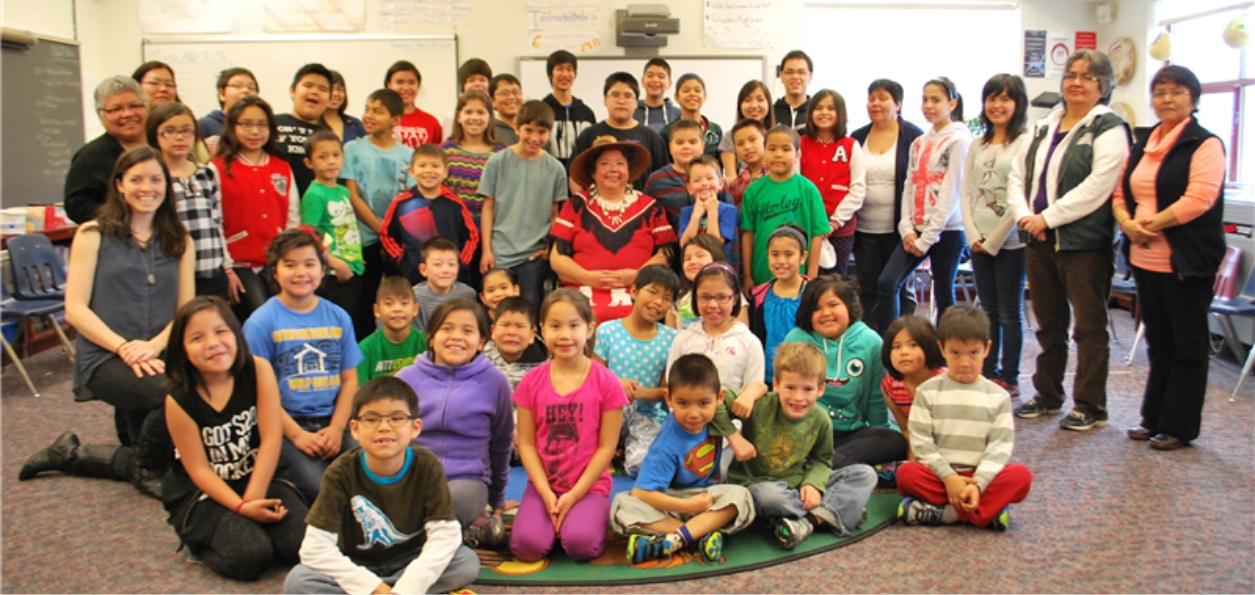Gitwinksihlkw Elementary School resides in the Nisga’a Territory, and enrolls 50 students in three classrooms. I have been teaching Grade 6/7/8 for three years now and have had the privilege of taking part in several inquiry projects over the last two years. Deb Koehn and Frances Roch have been incredible mentors for us at GES throughout the inquiry process, offering helpful advice, challenging our thinking and inspiring us.
Our Healthy Schools Inquiry question this year focused on providing opportunities for students to gain a deeper perspective of self. The theme this year in our school has been centered on the question, “Who am I?” Who am I as a Nisga’a person, as a community member, a student, a leader, a writer, a reader, an athlete, a son or daughter, brother or sister, friend?…and how can awareness of self help us be proud of who we are and help us to accept others? How can a sense of connectedness to our environment and community help build our sense of self?
The first major exploration of self-discovery that the students took part in this year was at the Wai Wah Youth Leadership Camp on Lakelse Lake in Terrace. Together with the help of a highly certified canoe instructor and spiritual leader, respected Elders, GES staff and parent volunteers, the students overcame numerous challenges out on the water, and discovered more about themselves as they overcame those challenges. The opportunities for leadership helped students develop their self confidence and work together as a team. Students learned about respectful listening and speaking from the heart in our daily council circles. Barriers and social cliques disappeared, as the entire group was able to bond together outside the four walls of our classroom. Students left the camp feeling exhilarated, stronger, more connected to themselves, each other, and their mentors.
Throughout the school year students have continued to demonstrate those great leadership skills that were first seen at the Canoe Camp. Several students have done “Teaching Days,” in which they take full responsibility over teaching the Division Three class for one day. This includes creating a day plan, Notebook presentation and hands-on lab for science, teaching a PE lesson, administering spelling tests, leading council circle, giving instructions, mini lessons and managing students’ behavior. It is exciting to see students flourish and gain self-confidence within the classroom setting as they find their voice.
In the classroom, students have also continued their “Who am I,” Identity exploration project by writing stories, essays, poetry and short descriptive paragraphs. In one assignment, students asked an elder or another family member for a special family story. The students wrote those stories down and retold them in class with the help of three visual artifacts. We found they were proud to share and very engaged in the writing process.
As we focus on self-discovery – this question of “who am I,” we have also been talking about differences and similarities between each individual person and how those differences should be accepted and apperceived by others. Recently, we invited a highly respected elder from the community of Gitwinksilhlkw to share her traditional knowledge of Nisga’a culture. She also told the story of “The Beaver and the Porcupine.” This story tied beautifully into our “Who am I,” inquiry as the students reflected on what makes them different and how there is a wide variety of unique individuals that make up a balanced community.
To support the students in their journey of self-discovery we have also been focusing on Mindfulness using numerous lessons from the MindUp Curriculum and our knowledge of traditional council circles. We start each day with a moment of silence (Core Practice) in council circle, which begins and ends with a chime. At GES we recognize that the emotional well-being of our students has a huge impact on their ability to learn, and most importantly their overall health and happiness. Council circle is a time for students to speak from the heart, listen respectfully, build inclusion and resolve conflicts. Mindfulness means being fully present in the moment and not stuck in physiological time thinking about the past or the future. As students become more mindful, not only are they more open to learning academics, but also open to learning more about themselves. Our hope is that a focus on Mindfulness will help students gain a deeper sense of self and their identity, apart from their past or future. Mindfulness will also help them to experience feelings of gratitude for their families, the community they live in, and the environment. As a future generation of strong Nisga’a leaders, being mindful will have an enormous positive impact on their life experiences as they pursue their dreams and goals, and help sustain a healthy community.


